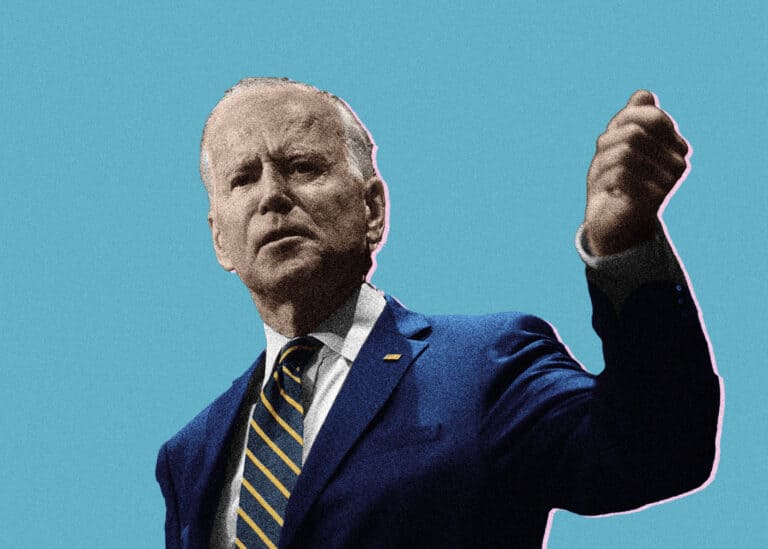
Andre Manuel is a student at Harvard Law School and a member of the Labor and Employment Lab.
Following through on President Biden’s campaign promise, Congressional Democrats have proposed increasing the federal minimum wage from $7.25 to $15 by 2026. The proposed law will finally eliminate the federal subminimum wage for tipped workers, which currently stands at $2.13.
The Fair Labor Standards Act (FLSA), which establishes the national minimum wage, also creates a second, significantly lower, cash minimum wage for tipped workers, defined as anyone who receives over $30 per month in tips. Under the subminimum wage, employers can apply a “tip credit,” counting tips an employee receives from customers towards the difference between the tipped subminimum wage and the minimum wage. In 1996, the tipped subminimum wage was decoupled from the minimum wage, meaning that it has remained at $2.13 since 1991, despite modest increases in the minimum wage since then.
The subminimum wage creates problems for tipped workers, who are predominantly low-wage workers and make an average of $10 per hour. Though employers are responsible for making up the difference if a worker’s tips do not add up to the minimum wage in any given pay cycle, enforcement of this FLSA provision is limited at best, and becomes especially complicated when overtime is taken into account. And reliance on tips as a substantial part of wages creates week-to-week wage fluctuations and great economic uncertainty for low-wage tipped workers.
It is about time we abolished the tipped subminimum wage. In addition to creating economic precarity for tipped workers, the practice is rooted in the exclusion of women and people of color from modern social protections. Tipping also continues to disproportionately harm those groups, introducing discretion and bias into workers’ wages. Reforming the FLSA won’t end tipping, but it will alleviate its most harmful effects and ensure parity between tipped and non-tipped workers.
History of Exclusion
American tipping is rooted in slavery. Tipped labor, like sharecropping, became prevalent in the South in the 1860s, and was a way for employers to avoid paying employees wages that conveniently developed after the formal end of slavery.
The current employment law regime, too, is rooted in racial exclusion. Many New Deal programs excluded Black, Hispanic, and female workers from the nascent federal safety net as part of a political compromise to keep southern Democrats in the New Deal coalition.
The Fair Labor Standards Act (FLSA) of 1938, which established the first federal minimum wage, was no different. The law excluded most restaurant and hotel workers, and therefore most tipped workers. For those tipped workers covered, the law did not explicitly say whether tips employees received would count towards the minimum wage, although the Supreme Court held that they did four years later, in Williams v. Jacksonville Terminal Co. At the time, it was common practice for some classes of employees – waiters and waitresses, bellman, porters, barbers, and others – to receive little (or even no) cash wages from their employers and to be paid mostly or entirely in tips. Relevantly, the losing plaintiffs in Jacksonville Terminal Co. were “red cap” or Pullman porters, a workforce of railroad porters that famously remained all-black until desegregation in the 1960s.
The FLSA also disproportionately excluded women. Besides labor groups, women’s groups were the loudest voices against counting tips as wages, perhaps because most restaurant workers were women. Even Eleanor Roosevelt weighed in against tips. But at a 1935 hearing, two Senators dismissively referenced the “girls” working at Coney Island restaurants who could receive $25 per week in tips on top of their $5 per week wages. Congress went on to ignore waitresses’ pleas, and the FLSA excluded restaurant workers and counted tips as wages.
The introduction of the tipped subminimum wage, added in 1966 over the objections of the restaurant and hospitality industries, was actually a step in the right direction. The law required that tipped workers be paid at least half the minimum wage in cash and established tip credits to make up the rest of it. The 1966 amendments, passed at the height of the Civil Rights movement, also ended the FLSA’s exclusion of restaurant and hospitality workers.
Disparate Impacts Today
The tipped subminimum wage doesn’t just have a history of exclusion. Today, it continues to harm people of color and women in two ways. First, both women and people of color are overrepresented among tipped workers; over two-thirds of tipped workers are women. All the problems with low wage tipped work are disproportionately borne by vulnerable groups.
Second, beyond being overrepresented among tipped workers, women and people of color working in tipped jobs face harms not felt by their white and male counterparts. Women in tipped industries report being expected to put up with high rates of sexual harassment in order to secure customer tips.
Workers of color also have lower wages due to discrimination. Contemporary social science tells us that discretion yields discrimination by enabling biases to manifest. In fields as diverse as employment and credit to policing and sentencing, organizations are limiting discretion in order to mitigate the impact of explicit and implicit biases. Tipping, meanwhile, maximizes discretion, leaving workers’ compensation to the discretion of not one potentially biased individual, but hundreds. Leaving the lion’s share of low-wage workers’ wages to their customers’ whims all but ensures wage discrimination.
Empirical evidence points to a racial tip gap. Civil rights lawyer Michelle Alexander recently noted the ever-present forces of race and gender in tipping, drawing on her own prior experience in the restaurant industry. Studies in the restaurant and taxicab industries have shown that customers tip Black workers less than White workers on average. When most of low-wage employees’ wages come from tips, possible because of the subminimum wage, Black tipped workers receive significantly lower wages. Title VII, the employment antidiscrimination law, regulates only employer behaviors, not customer behaviors, though some have suggested that employers may face disparate impact liability for tipped wage disparities. Some tipped labor practices may indeed already be illegal under current civil rights law. But rather than wait and see if a court will buy the argument that a practice explicitly allowed under the FLSA is actually prohibited by Title VII, Congress should intervene and end the two-tiered wage system for good.
Conclusion
Employers, especially restaurants and hotels, successfully lobbied Congress to include tips as wages in 1938 and fought against the 1966 reforms. They have recently flexed their political muscle, pushing Washington, D.C. and Michigan to abandon plans to end the tipped minimum wage even after voters had supported ballot initiatives doing so. They are likely to fight to maintain the federal two-tiered wage system, but Congress and President Biden should push ahead with raising the minimum wage and ensuring parity among tipped and nontipped workers.
Ending the tipped subminimum wage won’t end tipping (a controversial topic reserved for another day) and the disparities it enables, but it will mitigate its worst effects on low-wage workers. With minimum wage parity, tips will comprise a smaller part of tipped workers’ wages, mitigating the impact of discrimination in tipping rates. It will also provide much-needed economic security to all tipped workers, who are disproportionately women and people of color. Ending the tipped subminimum wage is not only good policy; it is a racial and gender justice imperative.










Daily News & Commentary
Start your day with our roundup of the latest labor developments. See all
July 11
Regional director orders election without Board quorum; 9th Circuit pauses injunction on Executive Order; Driverless car legislation in Massachusetts
July 10
Wisconsin Supreme Court holds UW Health nurses are not covered by Wisconsin’s Labor Peace Act; a district judge denies the request to stay an injunction pending appeal; the NFLPA appeals an arbitration decision.
July 9
In Today’s News and Commentary, the Supreme Court green-lights mass firings of federal workers, the Agricultural Secretary suggests Medicaid recipients can replace deported farm workers, and DHS ends Temporary Protected Status for Hondurans and Nicaraguans. In an 8-1 emergency docket decision released yesterday afternoon, the Supreme Court lifted an injunction by U.S. District Judge Susan […]
July 8
In today’s news and commentary, Apple wins at the Fifth Circuit against the NLRB, Florida enacts a noncompete-friendly law, and complications with the No Tax on Tips in the Big Beautiful Bill. Apple won an appeal overturning a National Labor Relations Board (NLRB) decision that the company violated labor law by coercively questioning an employee […]
July 7
LA economy deals with fallout from ICE raids; a new appeal challenges the NCAA antitrust settlement; and the EPA places dissenting employees on leave.
July 6
Municipal workers in Philadelphia continue to strike; Zohran Mamdani collects union endorsements; UFCW grocery workers in California and Colorado reach tentative agreements.